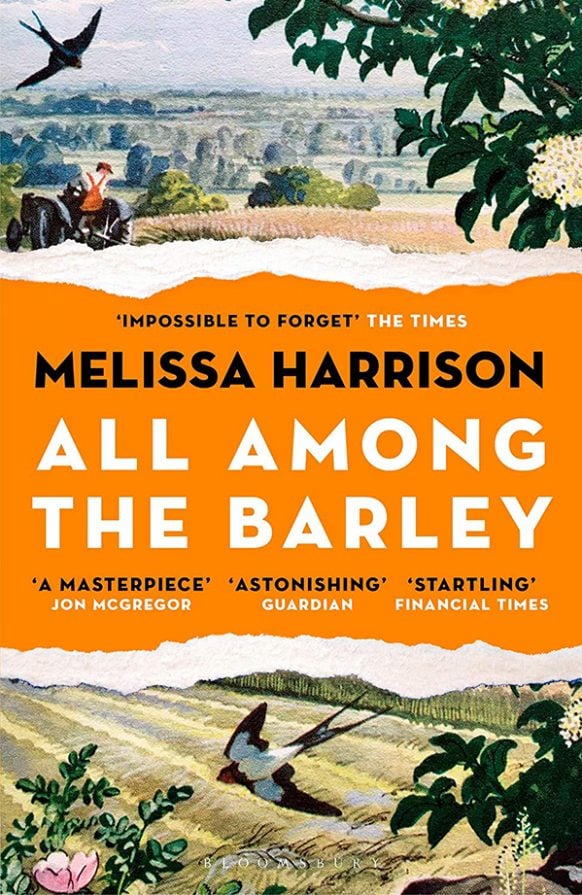All among the Barley by Melissa Harrison
Do not be fooled by the bucolic English field illustrated on the cover of this book! All Among the Barley may be set on a Sussex farm in 1933, but the book explores a lot more than mere nostalgia for bygone times.
The story is narrated by thirteen year old Edie, whose life is ruled by the seasonal rituals of the farm her family live and work on. It is a time before mechanical harvesting, when men rely on their horses and scythes to harvest the wheat and barley. There is a sense of man working with nature and her seasons, however fickle. But Harrison doesn’t pretend that this life is easy – she shows it is backbreaking, heartbreaking and relentless, but not without moments of joy. One hot summer’s afternoon, Edie and her older brother Frank escape the farm for a swim in the river, and Edie exclaims “God, the way it can fizzle up through you sometimes – happiness, I mean.”
When Connie, a young woman from London, arrives in the village, ostensibly to write about the dying farming traditions of old, Edie falls under her spell. Connie is independent and outspoken and worldly. But Connie is not all that she seems, and quickly shows her true colours, inflaming political debate in the village and causing irreparable damage to the community. Connie’s anti-Semitism is thinly veiled:
“Well, I’m no anti-Semite, of course. But they’re not from here, and if we’re not careful they’ll mar the character of England forever – not to mention the way they undercut wages and take work away from ordinary people, just as the Irish did.”
A farmer later talks about a speaker he heard who “spoke a lot of sense about agricultural reform – and about the Jews, too. The cancer of Europe, that’s what he said.” Fear of “the other” never appears to go away, does it? In Harrison’s Notes, she refers to an essay George Orwell wrote in 1945 after the liberation of Auschwitz, in which he says
“Something, some psychological vitamin, is lacking in modern civilisation, and as a result we are all more or less subject to this lunacy of believing that whole races or nations are mysteriously good or mysteriously evil.”
All Among the Barley beautifully evokes the English landscape and the traditions of a past rural life. It is a searing portrait of a young girl’s coming of age, in a time when sex was never talked about, and guidance thin on the ground. A sense of loss pervades the novel: opportunities to connect emotionally are never grasped. Edie tries to connect with her mother and feels constantly that she is a disappointment in comparison with her older sister. She wishes wistfully for her world to never change: “No more harm would ever come to us, and so it would go on forever, world without end: the elms always sheltering our old farmhouse, the church looking out over the fields. For the fields were eternal, our life the only way of things, and I would do whatever was required of me to protect it.”
Find All Among the Barley in the SMSA Library Catalogue
Review by Gaby Meares
Murder on a Monday Reading Group


